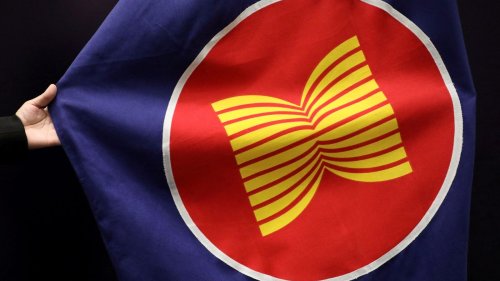KUALA LUMPUR, Aug 8 (NNN-Bernama) — Monday, Aug 8, the Association of Southeast Asian Nations (ASEAN) celebrates the 55th ASEAN Day, amidst challenges from within the 10-member regional grouping and the tensions in the region emanating from the United States (US)-China rivalry.
Though ASEAN has achieved many milestones since its inception in 1967, including the fact the world today views the grouping as a significant player in trade and geopolitics, it is often mocked as a paper tiger and no more.
Yet, that is no longer the case as ASEAN has been doing some soul searching in staying ahead, including relooking into over its decades-long policy of non-interference in the affairs of member states especially after a member state, Myanmar, turned rogue following a military coup on Feb 1, 2021.
In the just concluded 55th ASEAN Foreign Ministers’ Meeting (AMM-55) and Related Meetings in Phnom Penh, Cambodia, instead of sticking to the non-interefence principles several member states including Malaysia openly criticised Myanmar for the lack of progress in the peace process initiated by ASEAN through the Five point Concensus.
As the AMM-55 progressed amidst the backdrop of heightened tensions in Taiwan Strait, after US House Speaker Nancy Pelosi made a controversial stop in the self governed island which China considers its territory under the One China Policy, ASEAN made known its stand that both parties de-escalate tensions through constructive dialogue.
Geostrategic expert Prof Dr Azmi Hassan told Bernama that it is no longer business as usual for ASEAN with Malaysia, being among the first three founding members of the grouping along with Thailand and the Philippines, always taking a proactive role in finding solutions for the woes faced by the grouping and the region.
“I personally believe Malaysia, as the first nation to break the non-interference strategy, plays an important role in ensuring that ASEAN remains relevant at present and also in the future,” he said when asked to comment on Malaysia’s position in the grouping.
On the US-China rivalry that has spilled over to the region, he said; “In this internal maintenance of ASEAN, member’s deep voice and concern, especially on US and China rivalry has been steadfast with ASEAN not wanting to take sides and hopeful both sides will find a peaceful solution for the antagonism between them.
On South China Sea, he pointed out that ASEAN has been tactful and seems to be nearly in one voice in engaging with China, especially through the Code of Conduct (CoC).
Director of UKM’s Institute of Malaysia and International Studies (IKMAS) Prof Dr Sufian Jusoh noted that in defending democratic practice in ASEAN, especially in Myanmar, Malaysia has been very vocal in helping Myanmar return to democracy and ASEAN’s fold again.
Meanwhile, strategic affairs expert Rahul Mishra said ASEAN has to stick to its founding principles and normative ideas that define its identity while staying above the evolving challenges rising from changing global geo-politics.
“Respect for democracy and human rights, peaceful settlement of dispute, and respecting a rules-based order are key components of ASEAN’s role as a credible regional organisation.
“Whether it is AUKUS, a trilateral security pact between US, Australia and the United Kingdom (UK), or an expeditious settlement of the South China Sea dispute, ASEAN has to show resolve in dealing with the undue pressure exerted by the superpowers,” added Rahul, who is also a Senior Lecturer at Universiti Malaya (UM)’s Asia-Europe Institute (AEI).
ASEAN started off on July 31, 1961 as Association of Southeast Asia (ASA) made up of Federation of Malaya (precursor to Malaysia), Thailand and the Philippines and the membership was extended to other states in the region with ASEAN established on Aug 8, 1967, in Bangkok comprising five member countries; Indonesia, Malaysia, Philippines, Singapore, and Thailand.
Brunei Darussalam joined on Jan 8, 1984, Vietnam on July 28, 1995, Laos and Myanmar on July 23, 1997, and Cambodia on April 30, 1999.
— NNN-BERNAMA






